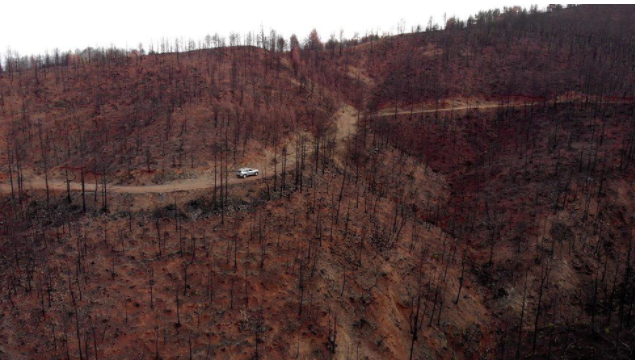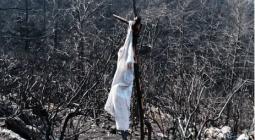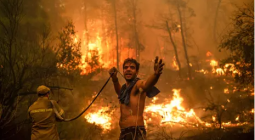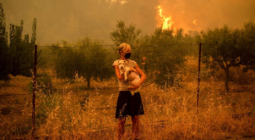Greeks fear megafires could be new normal for Med
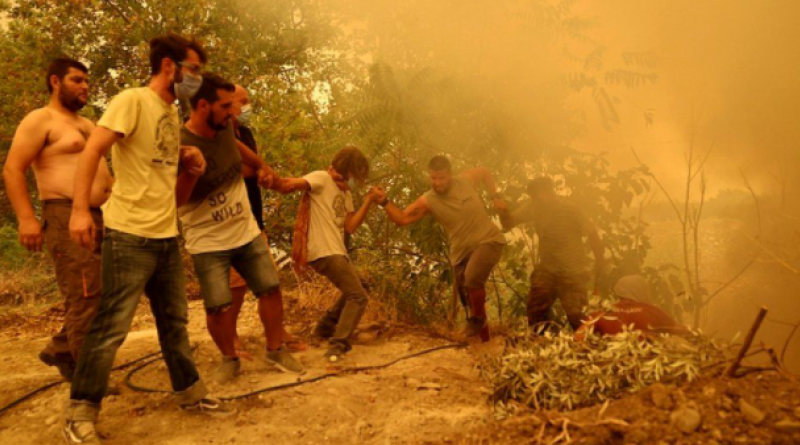
World leaders at the COP26 summit in Glasgow are under pressure to respond to global warming, and intense heatwaves and frequent forest fires are becoming an increasing threat around the Mediterranean.
This summer alone Greece was hit by thousands of wildfires, fanned by its worst heatwave in decades. Turkey, Italy and Spain all witnessed dramatic fires in recent months and the fire on the Greek island of Evia was the biggest in Greece since records began.
What happened on Evia was a megafire, an intense conflagration, which took almost two weeks to bring under control.
With more heatwaves forecast for future summers, there are fears that megafires could become the new normal.
"We never expected this," says Nikos Dimitrakis, a farmer who was born and raised in northern Evia. "We thought a part might burn, as in previous fires. But now the entire area was burned."

When the fire reached his land, he told me there was no-one there to help. Surrounded by flames, he grabbed tree branches in a desperate attempt to put out the blaze.
"The fire was coming uphill, there was so much noise and I was just sitting and watching. At some point I burst into tears and left. There is nothing you can do unless you have a fire truck nearby, something. Alone, what can you do?"
Like many people in Evia, Nikos relied on the forest for his livelihood.
"We lost our treasure, our forest, we lived from it. We lost our pine trees from which we'd take resin, we lost the chestnut trees, we lost some walnut trees. The point now is how the state will support us."

Nikos says the authorities mishandled the fire. "I feel angry, because I didn't expect this catastrophe to happen. For sure, climate change is a factor but the fire shouldn't have been allowed to grow so big. They are responsible. They burned us and they know it."
Many locals say the authorities didn't do enough to stop the spread of the blazes, but firefighters say this year's megafires were unprecedented.
'Not just a Greek problem'
Lt Col Stratos Anastasopoulos, who is responsible for co-ordinating fire-fighting aircraft across Greece, took me up in a helicopter to see the extent of the damage.
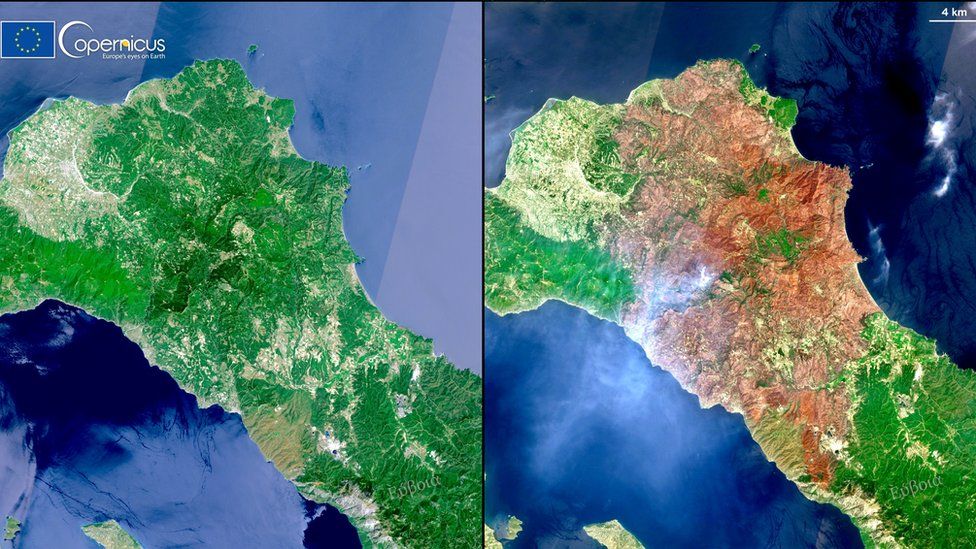
In his 23-year career he can't remember anything like it.
"It was a war... because we had a lot of fires all over in Greece - almost 100 fires per day for five or six days at a time. So it was very, very difficult for us."
Weather conditions were very different this year, he says, blaming an extended heatwave and very little rain. "I think all of us we can see the climate changes. There is not only a Greek problem or American problem or Italian problem. It's a global problem."
Greek Prime Minister Kyriakos Mitsotakis has blamed climate change for the extent of the damage.
"The climate crisis is here," he said. "We have done what was humanly possible but that was not enough."
While he admitted mistakes had been made in the response, the "intensity of the phenomenon overcame many of our defences".
More than 50,000 hectares (193 sq miles) of forest were burnt in northern Evia alone. It took almost two weeks to bring the fire under control.
The damage will be felt for years to come.
Foresters say the pinewoods will eventually regenerate if they can be protected from future fires - but the trees will take up to 30 years to grow back.
There is a real danger of erosion and flooding when the rains come this winter. The forestry department has hired local teams to use logs to form makeshift terraces to stop landslides.
Over the next months they will have to cut down dead wood all over northern Evia to make space for new trees to grow.
